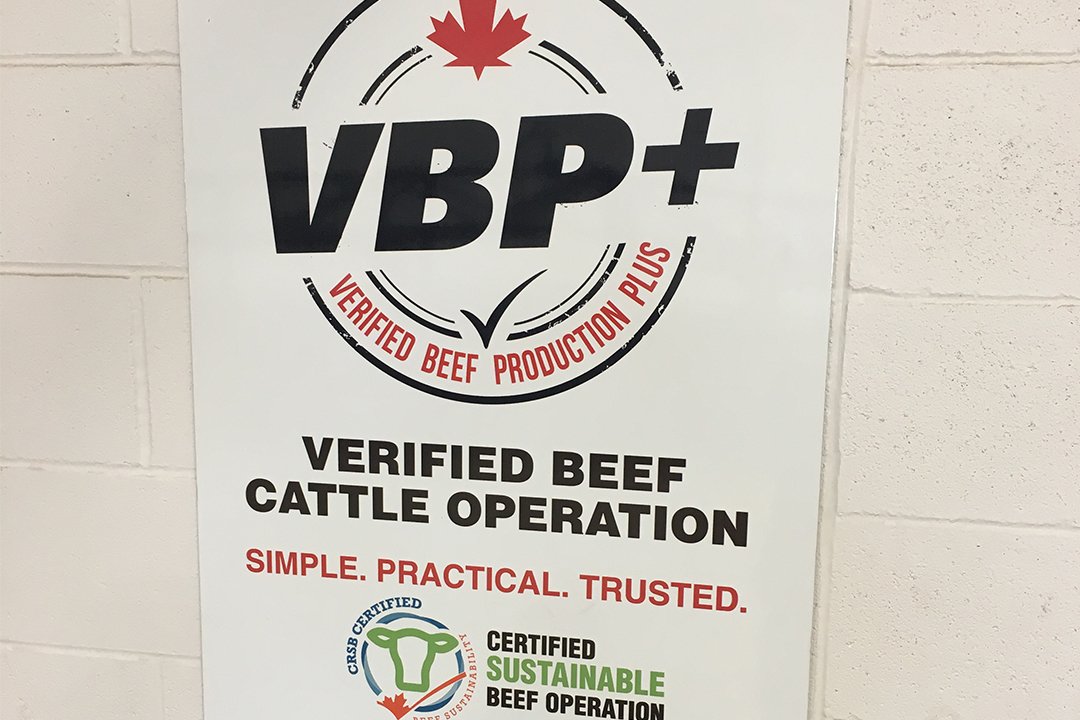
LFCE receives payment for sustainability
The Livestock and Forage Centre of Excellence has received its first payment as part of the Canadian Beef Sustainability Acceleration pilot project.
By Lana HaightThe payment is based on cattle sold between July and September of last year. In order to qualify for payment, animals must be tracked through a certified sustainable beef supply chain. Calves must be born and raised at operations that are certified by Verified Beef Production Plus and the animals must be slaughtered at a certified processing plant.
“Canadians want to know that the beef they are eating comes from cattle that have been raised sustainably. That means operations need to be socially responsible and environmentally sound for the consumer and economically viable for the producer,” says Dr. Kris Ringwall (PhD), director of the Livestock and Forage Centre of Excellence at the University of Saskatchewan.
Two of the three centre’s facilities are certified by Verified Beef Production Plus. The Beef Cattle Research and Teaching Unit, which opened in July south of Clavet, is certified as a feedlot, while Termuende Ranch, located near Lanigan, is certified as a cow-calf operation. Both certificates are valid until the fall of 2019, when the facilities will be undergo complete audits.
The cheque reflects the sale of six animals. Payments for the fourth quarter of year one of the pilot project were $18.24 per head. While that doesn’t add up to a lot of money, the recognition shows the university research facility is striving to be an industry leader.
“Moving forward, the Livestock and Forage Centre of Excellence will keep its calves from birth through harvest. Tracking the calf and cow throughout the production year allows the LFCE to explore the various sustainable production models that will meet the economic needs of cattle producers for future generations while providing the transparency for consumers,” says Ringwall.
Five principles guide beef sustainability as defined by the Global Roundtable for Sustainable Beef. They fall under these categories: natural resources, community and people, animal health and welfare, food, and efficiency and innovation. To learn more, go to the CBSA pilot website.
The CBSA pilot project is funded by McDonald’s, Loblaw of Canada, Original Joes, Swiss Chalet and Cactus Club. While initially a one-year program, it has been extended to the end of September, 2019.
